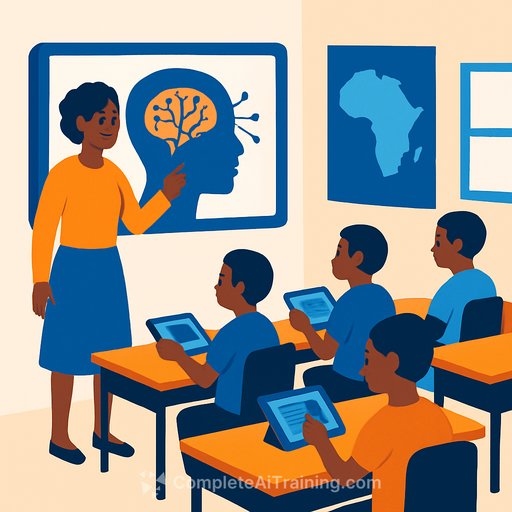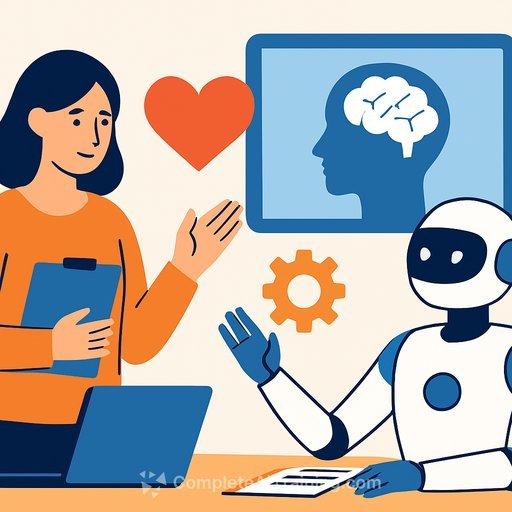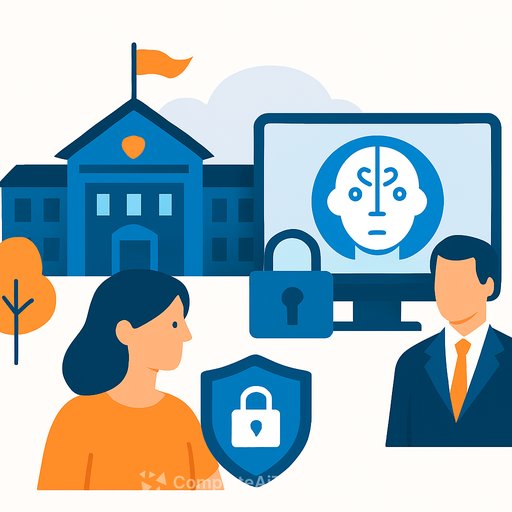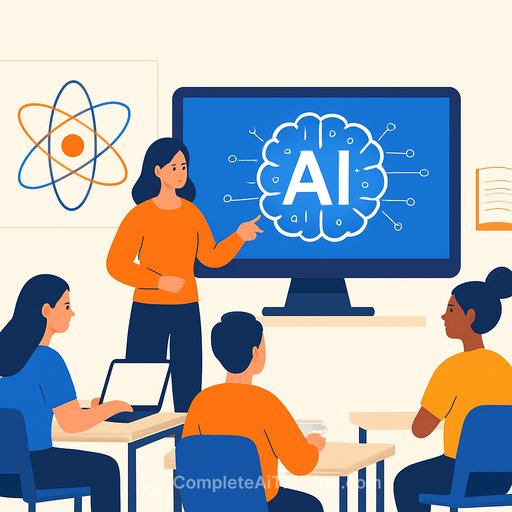Realising AI in Africa’s Education Systems
August 12, 2025
Africa stands at a critical point: it's time to move from planning AI strategies in education to actual implementation. This means training teachers, localising content, and building solid data infrastructure. The goal is to integrate AI fully into education systems, creating adaptive, data-driven, and culturally relevant learning experiences. AI can update curricula in real time, offer personalised learning paths, and run on platforms that work even in areas with low connectivity. This approach will help close skills gaps, promote inclusion, and align education outcomes with national and continental economic goals.
The Urgency Of AI Education For Africa
Africa is projected to make up over one-third of the global workforce by 2050. Preparing its young population for AI-first jobs must become a priority. Traditional higher education often fails to provide job-ready skills, making the need to transform education delivery with AI even more pressing.
AI platforms can analyse market signals to keep curricula aligned with current labour demands. African governments can customise these platforms by integrating data from job portals and industry surveys. This will help deliver focused micro-curricula in sectors like agritech, renewable energy, fintech, and healthtech, ensuring graduates have the exact skills employers seek.
Personalised Learning While Scaling Access
Many African classrooms struggle with overcrowding and one-size-fits-all curricula. AI-driven adaptive learning tools can change that by adjusting the pace and style to fit each student’s needs. Examples like Squirrel AI and Century Tech show this model’s potential.
Localised AI tools can add multilingual content and culturally relevant examples to serve diverse learners better. Although mobile internet reached 46% of Sub-Saharan Africa in 2023 and is expected to hit 70% by 2030, rural and conflict-affected regions still lack access. AI-powered platforms that work offline or with low bandwidth can address this gap. Kenya’s M-Shule and Ghana’s uLesson use SMS and compressed video tech to reach learners without stable internet. Satellite services like Starlink combined with edge AI can connect remote areas with minimal infrastructure.
Responsible, Inclusive Implementation
The African Union’s Continental AI Strategy, launched in September 2024, places education as a key focus and encourages national AI policies. Regional discussions, such as the High-Level Policy Dialogue in Addis Ababa (May 2025), stress the importance of ethical AI frameworks, data governance, and collaboration across sectors.
UNESCO is piloting AI readiness assessments in six Southern African countries to help governments develop AI education policies grounded in ethics and inclusivity. Responsible AI adoption requires transparency, fairness, and respect for local contexts.
Case Studies And New Initiatives
AI in education is no longer theoretical. Across Africa, governments and innovators are testing new models that challenge traditional approaches and offer scalable, locally relevant solutions.
Inclusive AI For Local Languages And Learners With Disabilities
- The AI4D initiative, supported by the International Development Research Centre (IDRC), has developed open AI tools for underserved communities in West Africa. For example, machine translation and text-to-speech for Bambara, a major Malian language, allow delivery of storybooks and STEM content in local languages.
- Tools for sign-language recognition and voice-based learning assist students with hearing or vision impairments, improving accessibility in multilingual settings.
- Over nine annotated African language datasets have been released to support research and development of natural language processing models tailored to local needs.
Ethical AI Governance In National Policy Frameworks
- Ghana and Rwanda have established national AI policies focused on privacy, transparent algorithms, bias mitigation, and data sovereignty, aligning with the African Union’s strategy.
- Rwanda requires data localisation and strong regulatory oversight for AI in education, prioritising local-language AI resources.
- Ghana mandates opt-in consent for student data collection and invests in capacity building for local data science governance.
- These policies offer replicable frameworks for ethical AI use in education across Africa.
Skills Training And Infrastructure Investment
- Microsoft’s national AI and cybersecurity campaign aims to train 1 million South Africans by 2026, focusing on youth, government workers, and private sector employees.
- The company committed $296.8 million to expand AI and cloud data centres in Johannesburg and Cape Town by 2027.
- Microsoft will sponsor certification exams for 50,000 individuals in AI, data science, cybersecurity, and cloud architecture within a year.
- To date, over 4 million Africans have been trained in digital skills, contributing to a broader goal of upskilling 30 million across the continent within five years.
Pan-African Talent Development By 2025
- The AI Skills Fellowship, supported by Festival Managers (FestMan), Microsoft, Google, and Bloomberg, targets certifying 10,000 African professionals in AI fields by the end of 2025.
- The program focuses on diverse sectors and prioritises women and underrepresented groups.
- Participants receive intensive training, mentorship, and access to cloud labs, earning certifications in AI engineering, ethics, and data analytics.
- Graduates are already applying AI in e-health diagnostics, precision agriculture, and language localisation.
AI For 10M Africans Literacy Network
- AltSchool Africa’s campaign aims to spread AI literacy through grassroots hubs in urban and rural areas.
- Over 50 pilot centres in Ghana, Nigeria, Uganda, and Kenya have reached 250,000+ learners, including youth and adults.
- In Ghana, community hubs collaborate with local teacher associations to create modules using indigenous knowledge, increasing relevance and uptake.
- This initiative demonstrates that scalable, affordable AI education models can engage communities widely and spark interest in AI careers.
Policy, Culture, And Skills Integration
At the eLearning Africa 2025 conference in Nairobi, education leaders agreed on integrating indigenous knowledge, green skills, and AI readiness into formal curricula. Teacher training emerged as a priority, empowering educators to co-create AI-powered content rooted in local culture.
Several countries have launched programs to embed AI pedagogy alongside digital skills and climate education. This regional alignment signals a shift from scattered AI pilots to coordinated national and continental ecosystems.
Measuring The Impact
Closing Africa’s digital skills gap could add $130 billion annually to Sub-Saharan Africa’s GDP by 2030. Professionals trained in AI command salary premiums of up to 56%. Establishing AI governance frameworks strengthens competitiveness for talent and investment.
A Strategic Roadmap: From Vision To Execution
- Policy alignment and governance: Develop national AI education strategies in line with the African Union’s Continental AI Strategy. Use UNESCO’s AI readiness benchmarks to guide progress.
- Public–Private Partnerships (PPPs): Expand proven models like AI4D, Mastercard Foundation’s Young Africa Works, GIZ’s digilern, and Microsoft’s AI training initiatives through co-funded projects.
- Infrastructure and connectivity: Increase broadband, satellite access, and device availability. Use universal service funds to support AI-friendly technology and teacher training.
- Teacher capacity and digital pedagogy: Integrate AI and digital teaching into both pre-service and in-service teacher training. Tools like Ghana’s GPT-based educator assistant pilot illustrate this approach.
- Ethics, data and equity: Enforce data governance policies, ensure AI transparency, and prioritise linguistic and cultural diversity to prevent digital exclusion.
- Monitoring & evaluation: Maintain national repositories to track AI education outcomes and conduct regular assessments using UNESCO metrics and labour market data.
Advancing Africa’s AI Education Agenda
AI-powered education is essential for Africa’s future. With a growing youth population and traditional systems unable to keep pace, scalable, adaptive platforms offer the best chance to improve learning outcomes.
Implementing AI in education means rethinking learning architecture: real-time feedback, localised content, multimodal delivery, and accessibility for all learners, including those with disabilities. This calls for decisive action beyond pilots and policy drafts.
Governments must lead with clear national AI and digital education strategies that prioritise equity, data sovereignty, and local innovation. Success depends on sustained collaboration between public, private, and academic sectors, guided by ethical AI principles and interoperable infrastructure.
Investment in teacher training, local language content, and durable digital platforms is critical. Current initiatives like Microsoft’s 1 million AI-skilled workforce, the AI Skills Fellowship, and AltSchool’s AI for 10M Africans show promising progress. However, scaling and coordination are crucial.
The path ahead requires clear governance, funding, capacity building, and vision. Africa has the chance to set global examples of how AI can make education inclusive and effective. The moment to act decisively and inclusively is now.
The ongoing continental dialogue will continue to explore building AI-powered learning ecosystems that balance regulation, infrastructure, pedagogy, and entrepreneurship for a sustainable AI future in education.
For practical AI education courses and resources tailored to educators and education professionals, visit Complete AI Training.
Your membership also unlocks:





